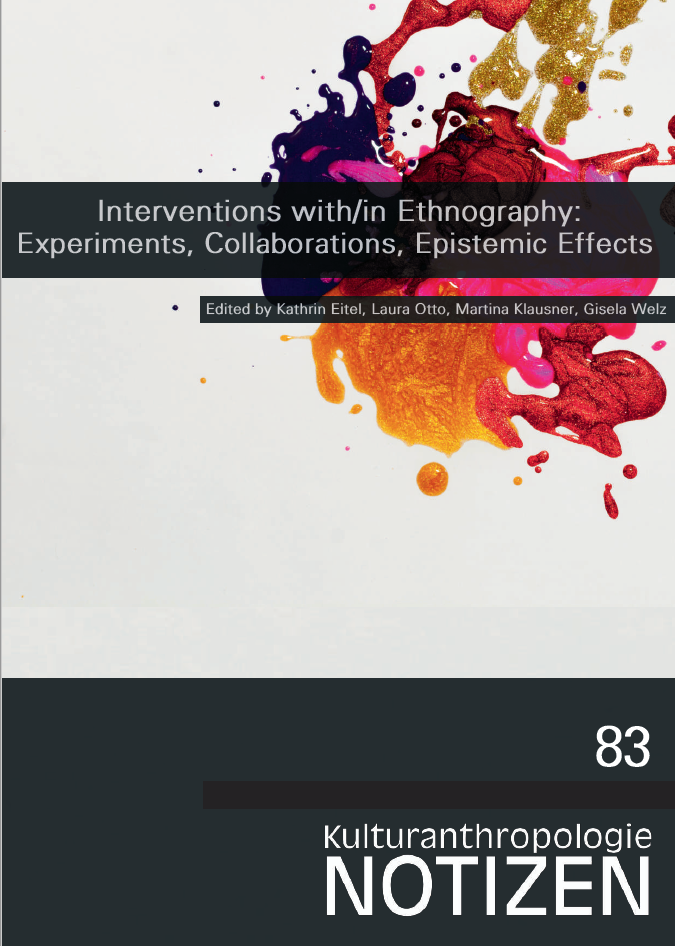Situated Withnessing in/as Intervention
Co-Laborative, Ethnographic Long-Term Research with Social Psychiatry
DOI:
https://doi.org/10.21248/ka-notizen.83.4Keywords:
ethnographic analysis, co-laboration, withnessing, relational analysis, urban mental healthAbstract
As part of my research on the relations between mental health and urban environments in Berlin, Germany, I observed in and worked with a project that aims to improve living conditions for people with severe mental health problems facing an increasingly expensive and competitive housing market. Over the course of the project, I became an active member of the project rather than a ‘mere’ participant observer. This kind of engagement is based less on an ethical commitment to the research partners’ moral and political goals than on generating situated empirical knowledge and concepts. Working with the project created situations of critical dialogue and confrontation from which analytical insights gradually emerged. This ultimately blurs the distinction between known and knowing subject(s), as well as those between observing, intervening and analyzing. Moreover, actively participating in this way serves as an ethnographic long-term intervention, which can produce novel research questions and methodological insights that may guide further research. The intervention’s target is thus beyond locally observed problems. I will briefly illustrate this argument by discussing my contribution to the interdisciplinary field of urban mental health research.
Downloads
Published
How to Cite
Issue
Section
License
Copyright (c) 2021 Kulturanthropologie Notizen

This work is licensed under a Creative Commons Attribution-NonCommercial-ShareAlike 4.0 International License.




